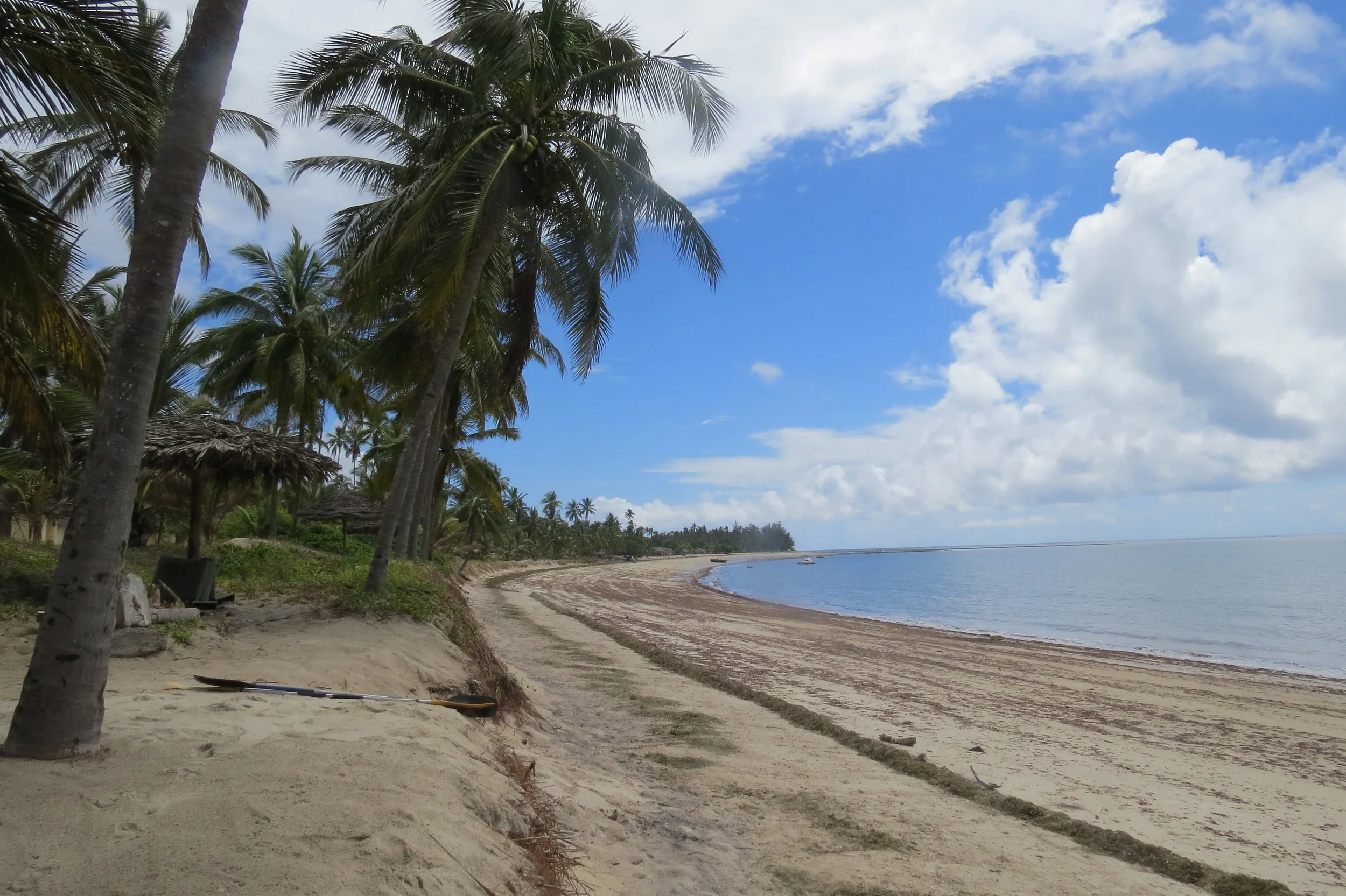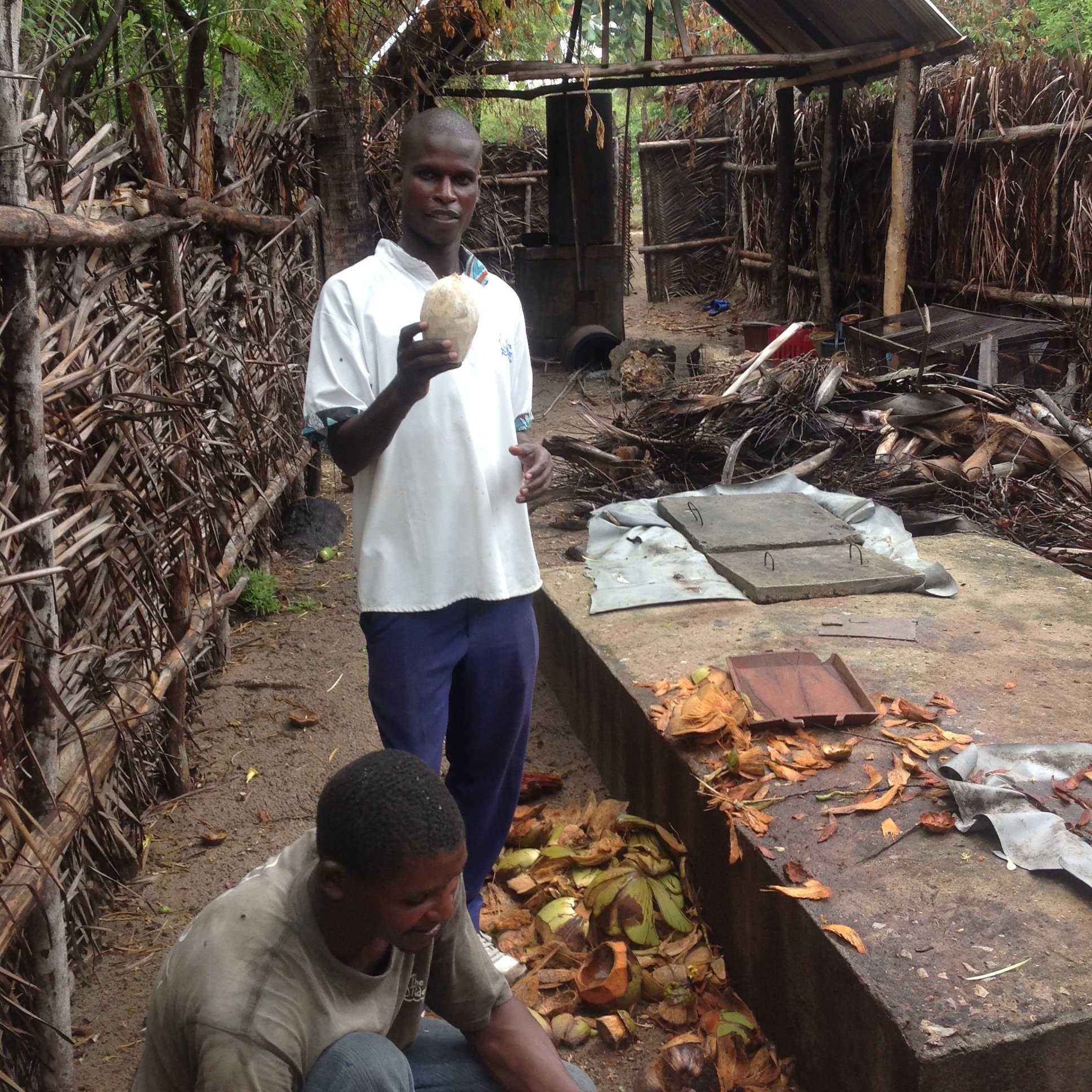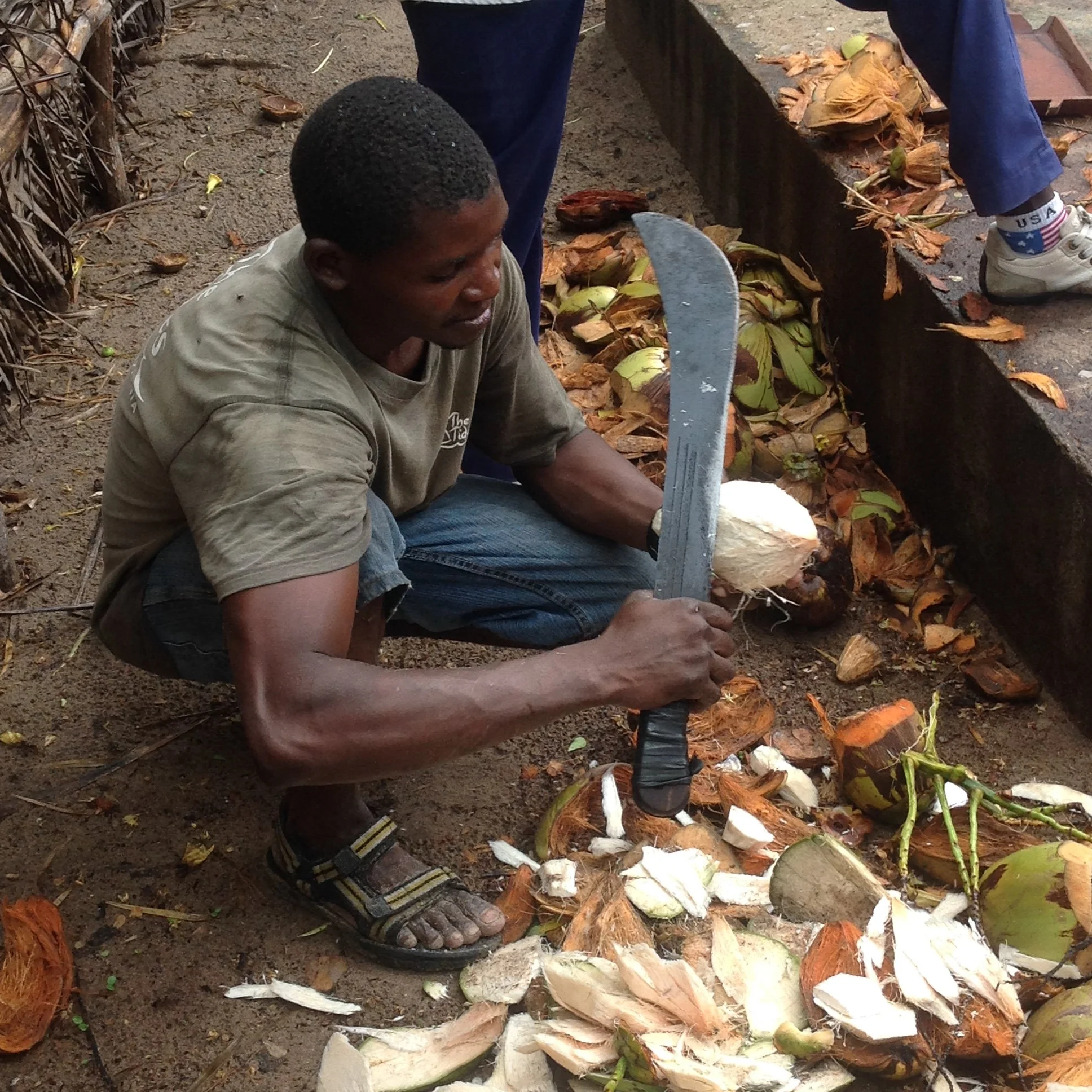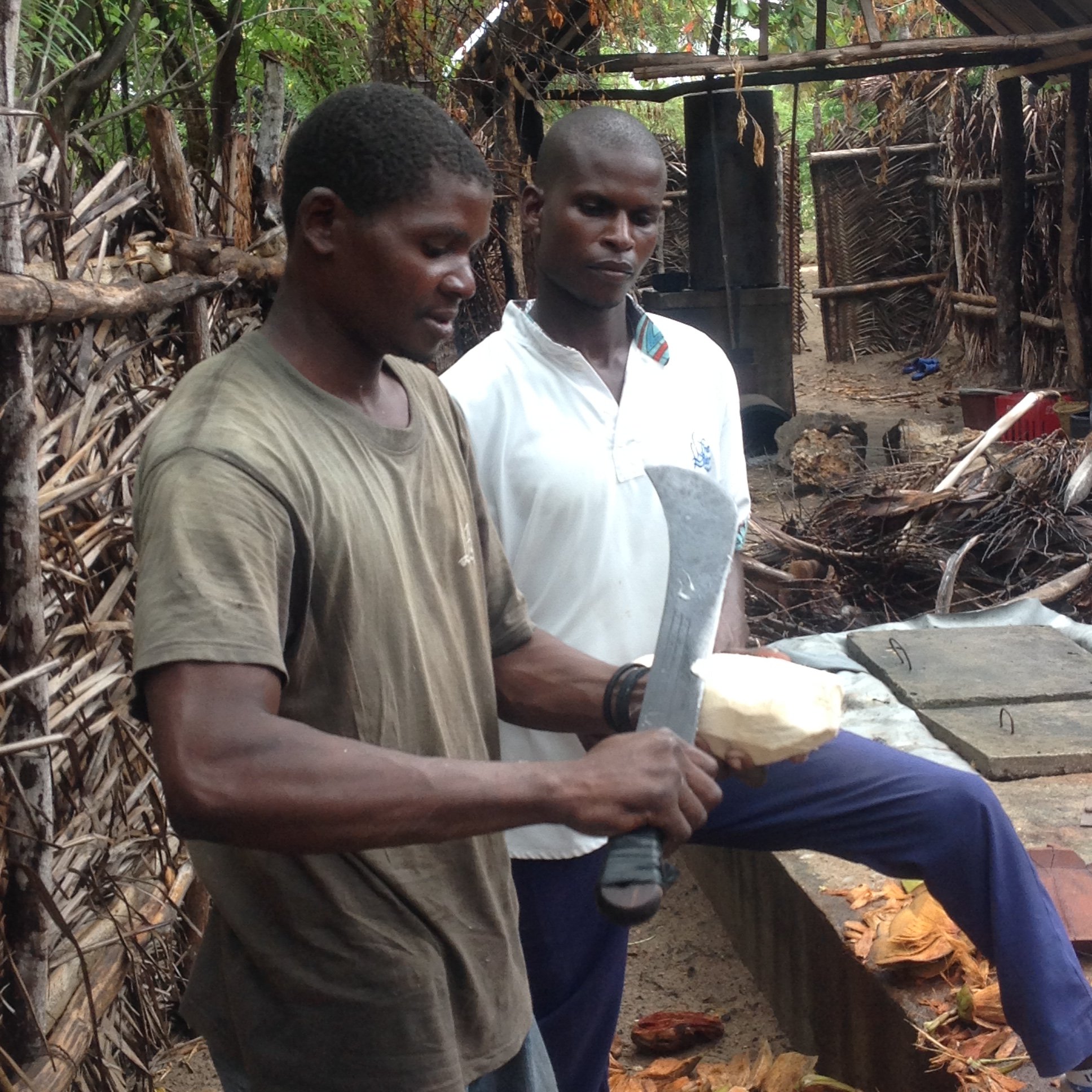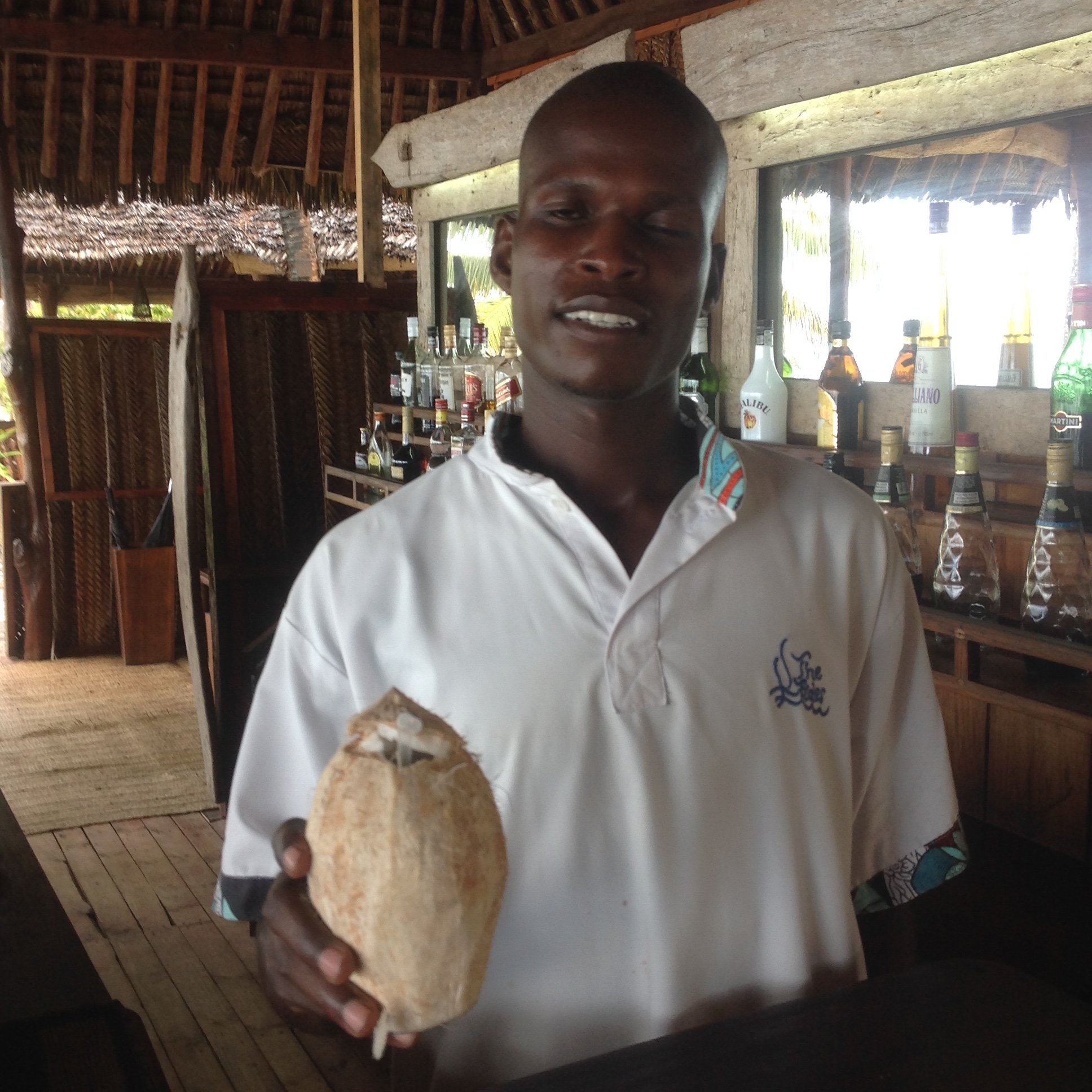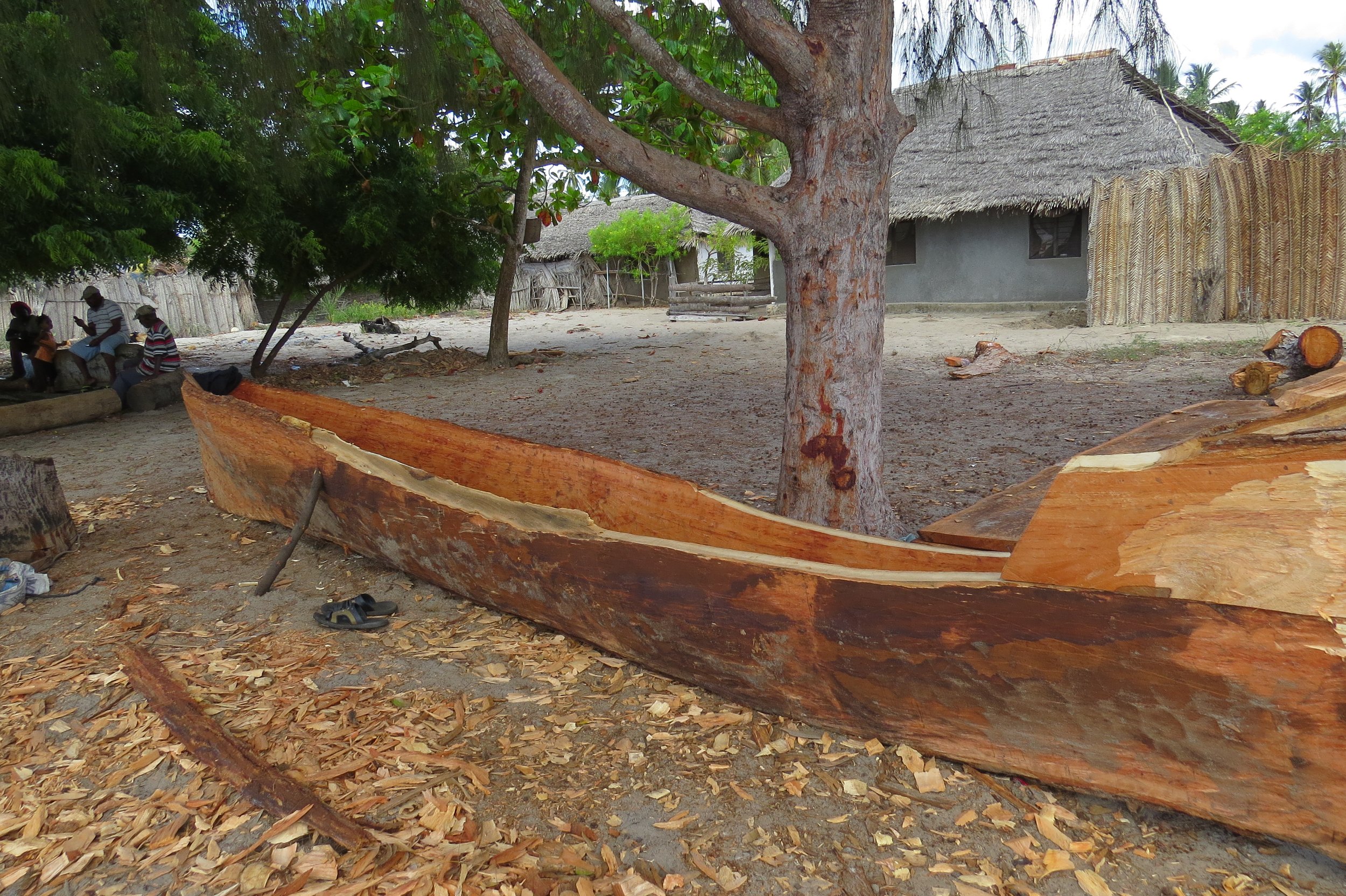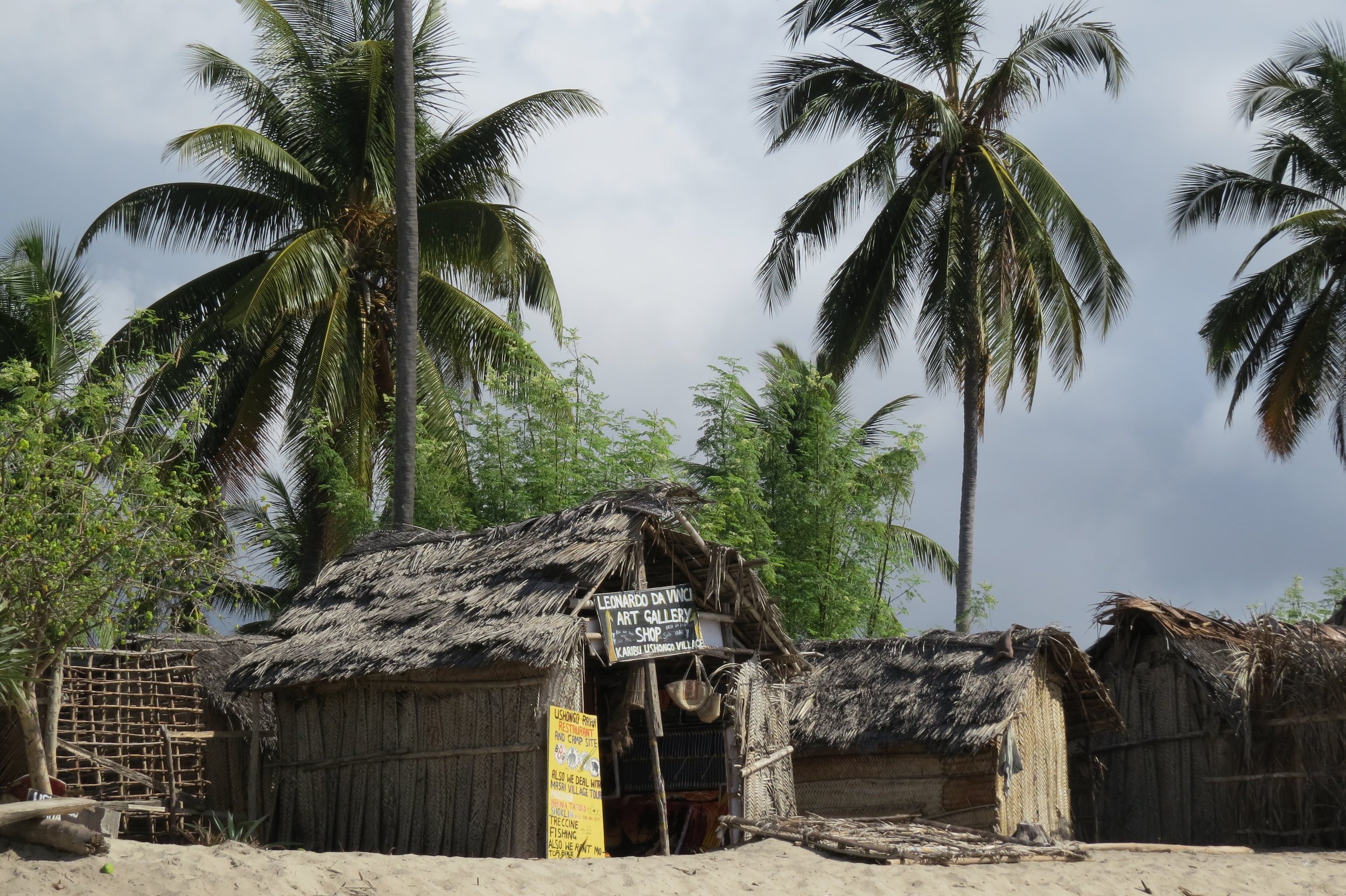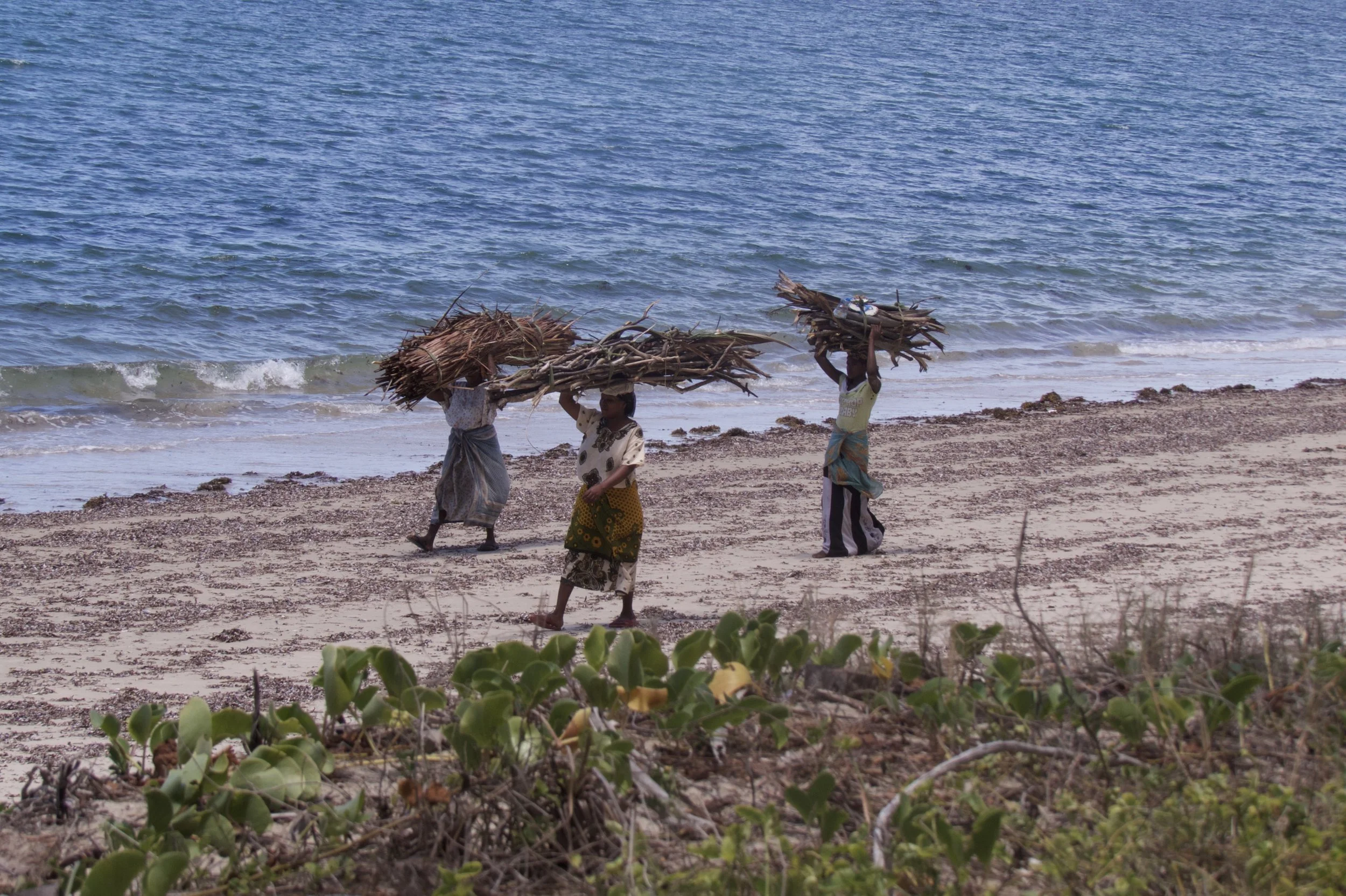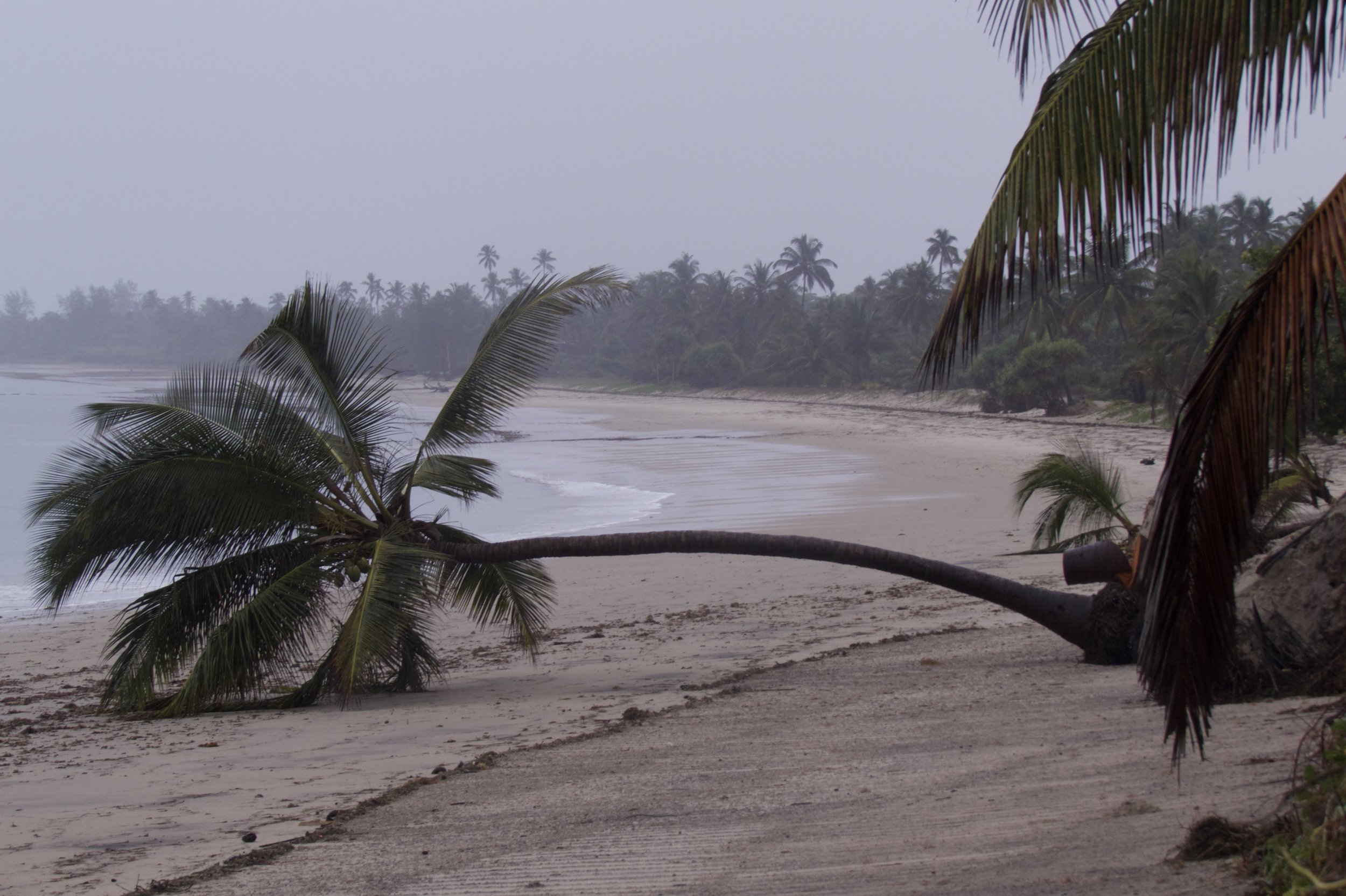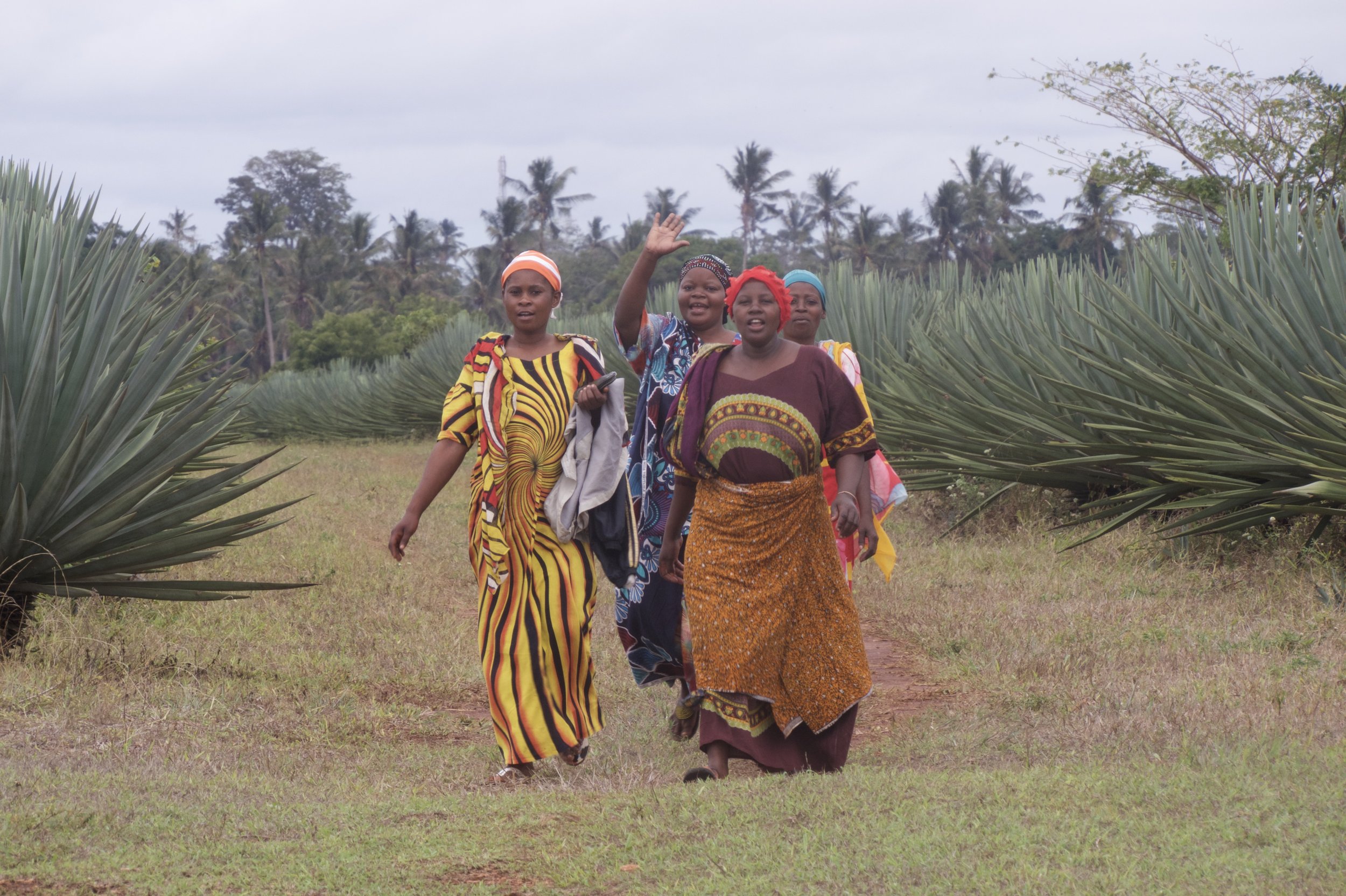After working for 3 weeks in schools, speaking to hundreds of kids each day, and after bumping around the hot and dusty interior of Tanzania, we decided to conclude our time in Africa with a few days on the beach.
Zanzibar had long been on our bucket list. Images of its white beaches and aqua marine water made me drool. However, the more we read about Zanzibar, the less sure we were about going there. It seemed very busy and crowded with 1.5 million people, a plethora of shops, restaurants, vendors, disco’s and bars…
Our travel agent at Mambulu Safaris, knew exactly what we needed. “You’re looking for Zanzibar the way it used to be,” he said, “You should go to Pangani.” No one I asked about it had ever heard of Pangani. But what we read online sounded just like what we were looking for: white beaches, palm trees and warm water.
The red pin shows the location Pangani.
Pangani is not an island. It’s a small village on the mainland, not far from Zanzibar. And to us it truly was paradise found! There is nothing to do - which is exactly what we wanted for a change. We stayed in the lovely The Tides Lodge, a perfect place to relax and enjoy solitude, or for families with children to come to the beach - although at high tide the beach disappears.
Our own bungalow.
Tanzanian UPS…
Getting here is an adventure in itself: we flew from Arusha to Tanga on a tiny plane with 6 people on board. After Tanga it was another 20 minute flight to Pangani. To our amazement, the pilot buzzed a dirt strip in the middle of sisal plantations. This told the local kids on their bicycles to get off the air strip. We landed on bumpy dirt and, in thew shade of one tree, a car waited for us. No airport, or anything else.
The Pangani airport.
But our bungalow is spacious with immediate beach access. A king size bed, a large bathroom with a warm shower, lounge chairs outside on our own little patio overlooking the Indian Ocean. I truly feel like I’m in heaven…
The little restaurant serves meals and drinks: seafood straight from the ocean caught by local fishermen. And piña coladas made from fresh pineapple and coconut. When I ask for one, the guy goes out back with his machete and whacks the top of a coconut…
We are forced to sit and read books all day! An amazing luxury… And if we really need to do something, we can swim in the bathtub-warm Indian Ocean or walk the beach and chat with local fishermen who are hauling in their nets. We watched some of them carve a new boat from a mango tree. Amazing! They hollow out this huge trunk with simple axes and tools. It takes 5 weeks to make a boat this way.
Or we can take a bike or a kayak if we want to do something - which we don’t. We are the only guests, at the end of the season (March) and revel in peace and quiet for a few days.
There are, however, perils in paradise. The sign in our room reads:
“Sitting under coconut trees can be dangerous. We advise you not to lie under a palm tree as coconuts can cause serious damage, injury and even death.” There are further warnings against sun burn and jelly fish. So far though, we are surviving.
The art gallery
The entire resort, as well as the nearby village, seems to be biodegradable: walls, roofs - everything is made from local wood and braided palm leaves. The rugs, the placemats, the coasters, the soap dishes, even the tissue box covers are made from grasses or coconut wood.
We watch local women walk the beach to gather anything for supper - perhaps some clams washed up in the weeds. They cut fallen palm fonds and stack them into bundles, to carry home on their heads to use for firewood or to fix the roof. Two little school boys walk the beach, on their way home every day. Each one carries a coconut on his head.
The waiter just walked from the restaurant to the beach where some fishermen were fishing. He picked something from the net, walked back and grinned “Calamari for lunch!” It doesn’t get any fresher than that. We’ve had nothing but fresh prawns, snapper and crab for lunch and dinner…
While The Tides Lodge is wonderful, I would check on the condition of the beach before coming next time. The sea is rapidly undermining the shore, eating away at sand and palm trees. We hear the high tide pounding all night and I worry about the rate at which the shore is disappearing.
And on the very last day of our amazing time in Africa, the wet season has arrived. Amazing tropical showers pour down once in a while, drenching everything. Time to go home.
RESOURCES:
Tides Lodge: http://www.thetideslodge.com/
Mambulu Safaris: https://mambulu.com/
